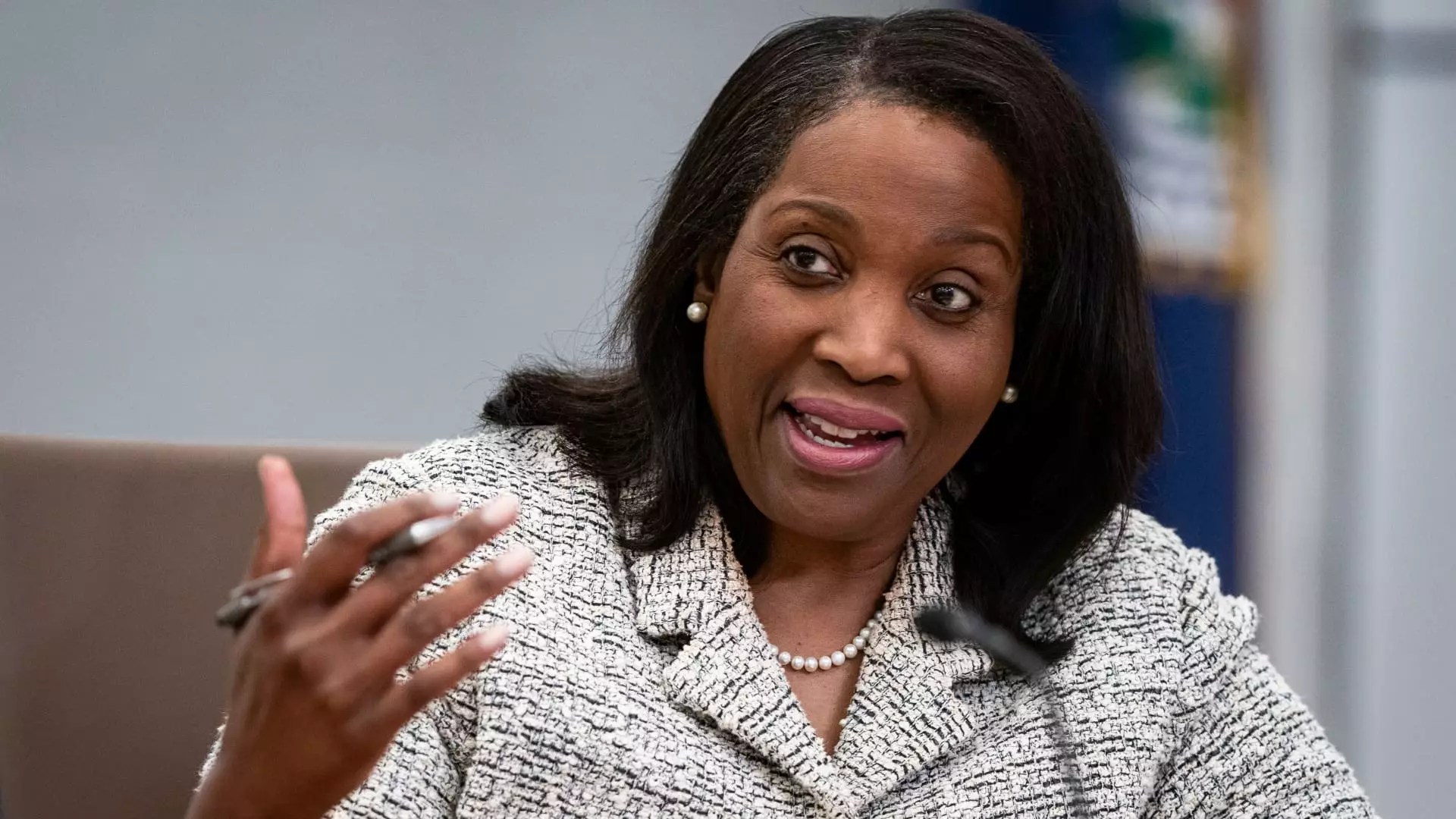In recent weeks, the controversy surrounding Federal Reserve Governor Lisa Cook has exposed a troubling trend: the increasing politicization of America’s central banking system. Once considered an insulated institution focused solely on economic stability, the Fed now finds itself embroiled in accusations steeped in partisan conflicts. This is no accident but rather a reflection of the broader erosion of institutional independence, which threatens the integrity essential for sound monetary policy. Politicians and political appointees are attempting to leverage various allegations—some seemingly unsubstantiated—to undermine confidence in the central bank. Such tactics weaken the crucial checks and balances that keep our economy functioning independently from political whims, risking instability at a time when economic resilience should be paramount.
The Implications of Politicized Investigations
The recent call for a criminal investigation into Cook, rooted in a referral from a political adversary, exemplifies how federal institutions are increasingly prey to partisan exploitation. A letter from a Justice Department attorney, urging the Fed to dismiss Cook, not only oversteps constitutional bounds but also embodies an alarming disregard for the legal processes that safeguard appointment and removal powers. The Federal Reserve Act clearly delineates that only the President holds the authority to remove governors, a principle reaffirmed by the Supreme Court. Attempts to sideline this constitutional structure threaten to politicize monetary policy in ways that could undermine market confidence and economic predictability. When the pursuit of partisan gains encroaches upon these established legal frameworks, the entire foundation of economic governance becomes vulnerable.
The Consequences of Criminalizing Leadership in Central Banking
Labeling Cook with allegations like mortgage fraud based on discrepancies in her residence claims reflects a dangerous trend—viewing policy disagreements or personal conduct as grounds for criminal investigation. This tactic does more than simply attack an individual; it intimidates entire institutions and their leaders. When political figures or critics deploy criminal referrals as weapons, it creates an environment of fear and retaliation that stifles independent decision-making. This approach not only diminishes the credibility of the Federal Reserve but also shifts the focus from prudent economic management to political battles. The broader consequence is erosion of public trust: Americans may begin to see the Fed not as an impartial guardian of economic stability but as a pawn in partisan conflicts.
The Risks for Democratic Governance and Economic Stability
Center-leaning liberals and defenders of institutional independence must recognize that the core strength of our democracy lies in trusting autonomous agencies to operate free from partisan interference. When political actors try to wield law enforcement as a weapon against perceived opponents within the Federal Reserve, they threaten to undermine the very fabric of our constitutional system. It is essential to resist these attempts because central banks serve a vital function—setting monetary policy that stabilizes prices and fosters full employment. Politicizing this process jeopardizes not only individual careers but also long-term economic health. The United States’ global credibility depends on unwavering independence at institutions like the Fed, which must be protected from the corrosive influence of partisan vendettas.
America Deserves a Respectful and Focused Federal Reserve
The current climate reveals a broader failure to respect the separation of powers and the importance of nonpartisan expertise. Politicians and media figures alike should prioritize factual, constructive debate over character assassination and political gamesmanship. It is an insult to the institution and to the American public when economic decisions become pawns in a broader ideological struggle. True leadership involves safeguarding the independence that allows the Fed to navigate complex macroeconomic challenges without undue influence from transient political pressures. Upholding this principle isn’t just about protecting individual officials; it’s about preserving the stability, credibility, and resilience of our entire economic system.
The ongoing saga involving Lisa Cook highlights the urgent need for America to recommit to the fundamental principles of central bank independence. Politicized raids on reputations and legal threats do nothing to further economic stability; rather, they jeopardize the delicate balance that ensures resilient growth, controlled inflation, and full employment. As the nation grapples with unprecedented economic pressures, it must reject these destructive tactics and recommit to an approach rooted in respect, legality, and the enduring trust that underpins democratic governance.

